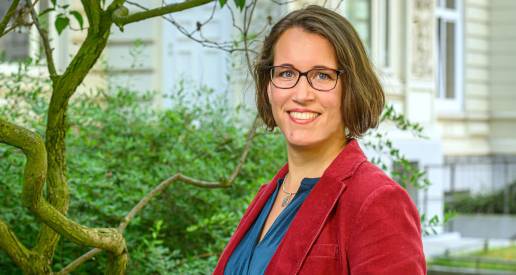The next Leibniz Media Lecture will be hosted by the Hamburg section of the
Research Institute Social Cohesion. PD Dr. Marc Mölders from the Johannes Gutenberg University Mainz will speak about the integration paradox of the public sphere.
Moderation:
Prof. Dr. Wiebke Loosen
When?
4:00 - 5:30 p.m.
Registration
The event will take place online via Zoom. After
registering, you will receive the dial-in details by e-mail shortly before the event begins.
About the Lecture
The integration paradox (El-Mafaalani) states that successful integration goes hand in hand with increased potential for conflict. If the public is seen as a controlling authority, it has become more polyphonic as well. Although there have never been so many conspicuous authorities, demands for debates across society are not abating. Instead of saying that everything has already been said, but not yet by everyone, it's more a case of: Because not everyone has said anything yet, not everything can have been said. If speaking positions and arguments are so closely linked, an integration paradox of the public sphere can be diagnosed: The more integration, the more difficult it is to make decisions and the more the successful expansion of audible and effective speaking positions is lost sight of.
About our Guest
PD Dr. Marc Mölders studied sociology in Bonn, Bielefeld, and Edinburgh (Science & Technology Studies). For his dissertation on sociological learning theory, he received the dissertation prize of the Westfälisch-Lippische Universitätsgesellschaft (WLUG, University Society) in 2010. His habilitation thesis "Die Korrektur der Gesellschaft. Irritationsgestaltung am Beispiel des Investigativ-Journalismus" [The Correction of Society. Irritation Design Using the Example of Investigative Journalism] was discussed extensively in 2021 in a forum of the Journal for Theoretical Sociology (ZTS), of which he has been co-editor since 2023. Since May of the same year, he has been a postdoc and private lecturer in the Department of Sociology of Media and Social Theory at the Institute of Sociology at Johannes Gutenberg University Mainz. His research focuses on the question of how (e.g. philanthropic) organizations work to solve major problems in a differentiated society.

